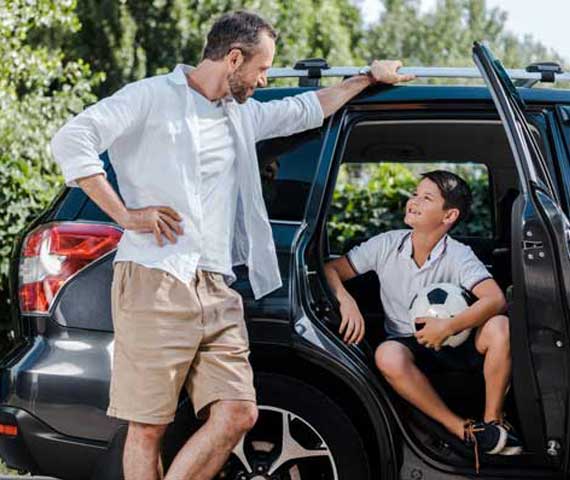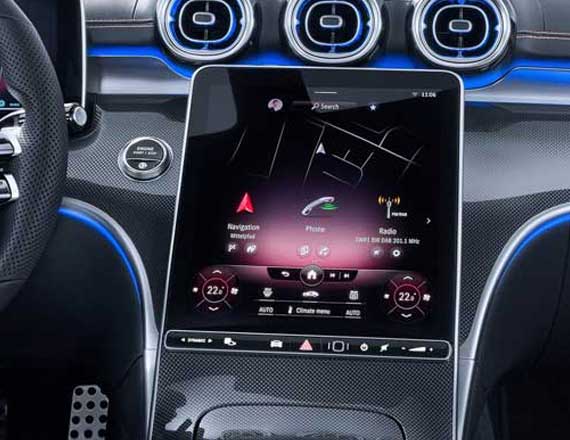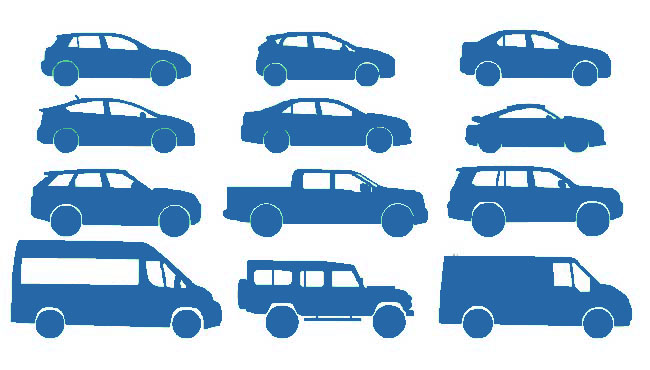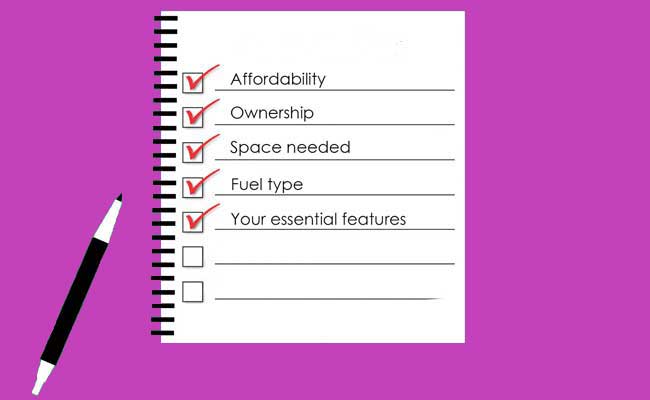This guide is designed to help you if you are looking for a new car. We know that a car is a big financial commitment and so we want to help you be as prepared as possible in order for you to make the right choice.
We’ll look at the key factors you need to consider and the questions you need to ask yourself when choosing a new car including how you’re going to fund it, what you actually need from a new vehicle, other financial costs, and much more.
The first question you need to ask is how you’re going to fund a new vehicle.
Are you looking to buy a car or lease? Will you be trading in a current car, if so how much will you get for it and how much of that will you put towards a new vehicle?
It’s important to consider how much you can realistically afford to spend on a new car, whether it’s a lump sum or broken down monthly. When deciding on a figure you’ll also want to factor in the other costs associated with car ownership.
When looking for a new vehicle you might be considering a lease car. There are a number of benefits for both.
With leasing you’ll have:
You’ll also usually be able to drive a more expensive car then you might be able to afford if you were looking at outright purchase.
If you decide leasing is the right choice for you then you’ll need to ask yourself a few other questions like how many miles you drive annually and whether this is suitable for leasing, as well as if you need to make any modifications to the vehicle and what financial cost you might face for this when it comes to handing the vehicle back.
For more information on leasing take a look at some of our leasing guides here.
There are a number of benefits that come with purchasing your vehicle, whether you purchase this outright or with a payment plan. These include:
One of the biggest factors that comes into play when deciding if you are going to lease or own a new vehicle is how much you are able to pay for the vehicle up front. When considering how much you can afford up front remember it’s not just about the initial payment for the vehicle but any changes you’ll need to make to your insurance, taxing the vehicle, and any other costs you might have at the point of order.
If you are looking at purchasing your next car then you might be trying to decide on whether to purchase a brand-new vehicle or a second hand one.
The obvious benefit to a second-hand vehicle is that the purchase price will be much cheaper. You can also get some good deals on models with low mileage however most will not come with a warranty and you will want to carefully check the vehicle for any damage or conditions that could cause you issues at a later point. This includes checking the vehicle’s paperwork and previous mot and servicing history.
If you don’t know a lot about cars then it might also be worth you a friend or family member with you who does, when viewing any potential vehicles.
A new car has a higher purchase price however it comes with several benefits not to mention the fact that it has no wear and tear on it. They will have a manufacturer’s warranty in case something does go wrong, will not require an MOT for the first three years of their life and as there’s no wear and tear initial servicing and maintenance costs should be lower.
When you’re looking at a new car you might have an idea in your head of a particular model or brand but these might not always be the best choice for you
What you really need to consider is what the vehicle will be used for, how much room you really need, what your must-haves are, the body style and the fuel type that's best for you.
What you’re going to be using the vehicle for is an important question to ask. If it’s a car you’ll just be using for work commutes and trips you’ll need different things than if it was a family car.
You’ll need to consider:

When looking at a new car you need to consider how much space you’ll need.
This will need to be for both the number of passengers you want to carry as well as the cargo-carrying space. It’s important to consider these together as well, as if you opt for a seven-seater then the rear passenger seats often take up a lot of the boot capacity.
If you carry a lot of cargo then it might also be important for you to look at how easily the rear seats fold down and how flat they lie once folded away.
We mentioned above about car seats and if you have more than two children who require a car seat then you will need to think about how much space there is in the rear passenger seats and whether all the children’s car seats will fit. It’s important to check there are enough fittings for the number of car seats you need as well, as not all cars have the fittings for them on every seat.
If you have dogs you might also want to consider how easy the vehicle will be for them to get in and out of and any other features that you might need for transporting your pet. If you want to find out about pet-friendly vehicles take a look at this article.
While an SUV or estate are typically bigger than a hatchback this is not always the case, you can get some more spacious hatchbacks and compact SUVs. When thinking about your space needs you will want to consider your preferred body type but you shouldn’t rule out an entire class because you think they’ll be too small or large for you. Scroll down to find out more about the different body shapes and how you should factor these into your decision.

You also need to think about your must-have features. Will you be doing a lot of parking and think parking sensors and a reversing camera are essential? Or is it more important to you to have a built-in satnav and smartphone compatibility?
With advances in technology there’s a whole host of safety and convenience features that you can now get and we recommend taking a look at what’s available and deciding what are your essentials as well as other features that you’d like to have but could live without.
If you’ve got a particular model in mind but it doesn’t have all your essential features you might also want to consider looking at other cars in the class, as other brands might offer these features as standard or for a smaller additional cost.
We’ve taken a look at what we think are the top five features you should look for in your next car if you need a place to start with what is essential for you.
Today the fuel question is more important than ever before with the big push towards electric models.
If you are leasing then you’ll only have the vehicle for a set number of years and you won’t need to worry about the resale value of it which we’re beginning to see being affected by the fuel type.
When looking at the traditional fuels, petrol and diesel, it’s generally considered if you do less than 12,000 miles a year then a diesel won’t be the right choice for you. A diesel car is typically more expensive than its petrol counterpart and so you need to cover quite a few miles to make up the difference that you save on fuel.
The type of journey you do is also important if you’re thinking of opting for a diesel engine, as it needs to be run at higher speeds regularly in order to burn off the soot particles that collect in the diesel particulate filter. Without this, the filter becomes blocked and then needs repairing or replacing which can be costly.
As we shift towards a fully electrified car industry many drivers are choosing to go for a hybrid vehicle as a stepping stone between a traditional combustion engine and full electric vehicle (EV) as they do not have the range anxiety of EVs but do have some of the benefits. Not all hybrids require plugging in to charge the electric motor component, and so this also alleviates charging concerns that drivers might also have. For more information on hybrid vehicles then you should take a look at this guide.
Electric technology is constantly evolving and the mileage range on offer is longer than ever before so any concerns you might have about not being able to do your daily miles in an electric vehicle without needing to charge are no longer a worry unless you travel a long distance each day. It’s also getting easier to charge them, with higher capacity batteries, faster charging units at a variety of locations including the ability to have one installed at your home. All of this, as well as the financial benefits and grant schemes that are currently in place for drivers of EVs, and the environmental benefits, mean electric is a great choice for your next car.
You might find this guide useful in helping you to decide on the right fuel type for you as it looks at the pros and cons of the main fuel types.
We mentioned body shape earlier when considering how much room you need but think it’s important that you consider more than just the space available within each body shape.
If you have young children who you need to lift in and out of car seats regularly then a car with a higher height like and SUV might make it easier when strapping them in. Or if you have a dog that wants to get in and out of the vehicle themselves then a car with a lower boot would be better so they’re not having to jump as far.
It’s also important to consider your own comfort as the driver and whether you would find it easier to get in and out of a lower or higher seat. Some drivers also find the higher seat and viewpoint of an SUV or crossover more comfortable and convenient for them.

Not only do you need to consider whether you are purchasing or leasing and the cost of this but there are other costs associated with driving that you need to consider when deciding whether a particular vehicle fits into your budget.
These can be weekly, monthly and annual charges that you need to factor in.
If you have gone for a petrol, diesel or hybrid vehicle then you’ll need to fill up at the pump regularly. Depending on the number of miles you drive and the model you choose this can add up to quite a bit each month. It’s important to factor in your fuel usage and the cost of this into your budget as well as helping you decide whether a less economical model is really the right choice for you.
For pure EVs and PHEVs you’ll need to plug the vehicle in to provide the ‘fuel’ for your car. In this case you’ll want to factor into the budget the additional cost to your electricity bill if you are using a home charger, or the cost of charging a vehicle using the public network.
If you are purchasing a vehicle you will need to pay the road tax for this.
You can pay your road tax annually, six monthly or monthly via direct debit, but whichever payment option you choose you will need to ensure there is room in your budget to pay for it. Depending on the fuel type you choose and the size of the engine the road tax can be a few hundred pounds annually.
If you are leasing then the cost of taxing the vehicle is covered by the funder. However, if there is an increase in the tax amount during your lease then you might be charged the difference.
Whether you are purchasing or leasing you will need to insure your vehicle.
The cost of insurance depends on a number of factors for both you as a driver and the vehicle you’re driving.
When looking at new vehicles we recommend having a look to see how much the vehicle will cost to insure. You might want to speak to your current provider to see what kind of offers they can provide you with.
Whether you are purchasing or leasing you will need to maintain the vehicle, and it will require regular servicing. This is a cost that you will have with any vehicle though the amount will vary between models, their age, as well as your driving habits and patterns.
If your vehicle is older than three years old it will also require an MOT annually. Any necessary repair work will also need to be completed.
If you decide to lease your next vehicle you can add a maintenance package, which will cover the cost of MOTS, services and most maintenance work needed for a fixed monthly cost. Find out more about maintenance packages here.
If you decide that purchasing a vehicle is the right choice but think you’ll need to update your vehicle again in a few years then you’ll want to consider the resale value of it and how much the car will depreciate during the time you own it.
This is true whether you are looking at a new or used vehicle, however new vehicles do depreciate a lot quicker.
If you decide that leasing is the right option for you then you should be aware that there may be charges at the end of your lease.
If you exceed the contracted mileage then you will be charged for any additional miles. This will be at the pence per mile cost agreed in your original contract.
You might also be charged for any damage or excessive wear and tear that is not in line with the BVRLA’s fair wear and tear guidelines.
If you do not arrange for your vehicle to be collected by the end of your contract period you will also be charged pro-rata for the additional dates you have the vehicle.
To find out more about the end of lease process take a look at this guide.
We recommend that you make yourself a list of answers to the question’s we’ve explored above and refer to this when looking at a new vehicle. The checklist will probably look a little like:
How much can I afford to pay upfront?
How much can I afford to pay monthly?
Do I want to buy or lease?
How many seats do I need?
How much boot space do I need?
What type of fuel do I want?
How much does the vehicle cost to tax?
How fuel efficient will the car be and how much will it cost to fill up?
How much will it be to insure?

Check out one of our helpful guides or our explaination of leasing to get all your questions answered.
You can unsubscribe at any time